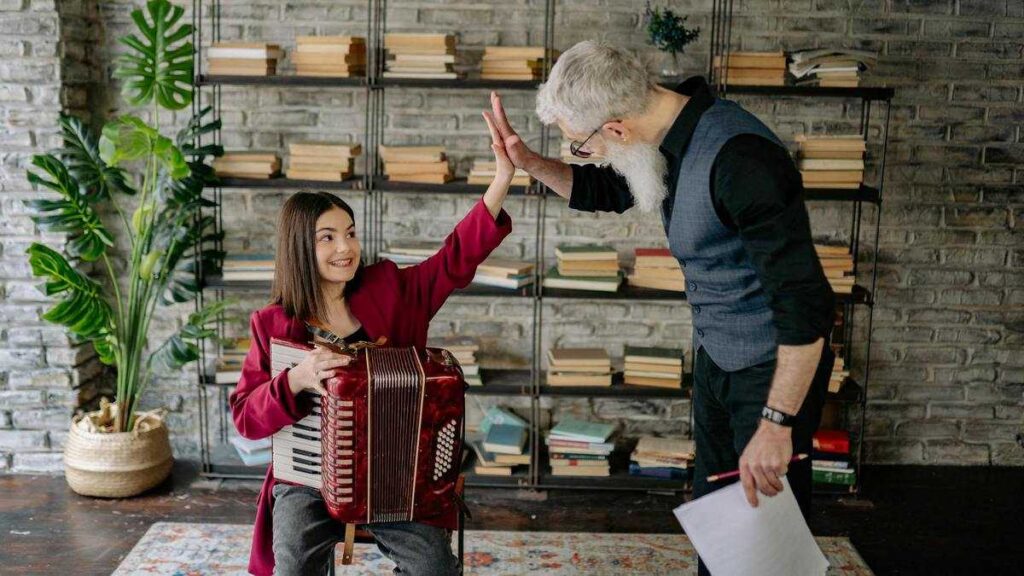Science
Ghost in the Stone: AI Uncovers Prehistoric Clues That Could Rewrite Bird Evolution
17 February 2026

"You're so capable! You're so smart!" These phrases seem like the perfect praise for a child. However, research shows that this form of encouragement, despite good intentions, can actually demotivate. How is it possible that by trying to help, we clip a child's wings? The answer lies in a famous experiment you need to know.
“Every situation demands a validation of intelligence, personality, or character,” writes Professor Carol Dweck in her book Mindset: The New Psychology of Success. The American psychologist emphasizes that no one can escape evaluation, as it applies to every situation and behavior. If others don’t evaluate us, we do it ourselves. Hence, we constantly ask: “Will I succeed or fail? Will I be accepted or rejected? Will I look smart or foolish?” Understanding how to wisely praise a child is crucial, as early experiences with evaluation shape a child’s fundamental mindset.
Facing life’s challenges requires the right mindset, a mentality built from childhood. Some rely on innate abilities and intelligence. These individuals often get noticed quickly and are raised with a sense of their own uniqueness. But does betting everything on this lead to genuine self-confidence later in life?

Nearly 20 years ago, Carol Dweck conducted an experiment that still sparks debate today.
The first stage of the research involved a simple test. All participating students could complete it, even achieving good results. Then, the children were divided into two groups. Students in the first group received praise like: “Fantastic! You’re so capable! You’re so smart!” This type of praise emphasized the child’s innate traits, which seemingly contributed to their good test performance.
In the second group, children heard: “Well done! You were clearly focused. You put in the effort, you worked hard, and it shows. Good job!”
In the next stage, participants had two types of tests to choose from: an easier one and a more difficult one. To the parents’ surprise, the children praised for their talent and intelligence were reluctant to tackle the harder tasks. They knew they had a lot to lose. How would others judge them if they couldn’t handle the more challenging version of the tests? The fear of losing their “smart and talented” label prevented them from taking on more ambitious tasks.
Recommended: We Admire, Envy, Yield. The Psychology of Wealth
Children praised for their diligence handled setbacks differently. For them, the highest value lay in striving for a good result, as this was what they were praised for. They readily took on the harder tasks, figuring that at worst, failing the test wouldn’t be an issue. Instead, they viewed potential failure as another learning opportunity. Consequently, they were confident that new experiences would help them achieve their goal on the next attempt.
It turned out that praising intelligence or talent alone doesn’t necessarily boost self-confidence; it can even have negative consequences, as the third phase of the experiment demonstrated. During this phase, students had to solve identical, truly difficult problems. Unsurprisingly, everyone struggled. However, their reactions to failure were fascinating.
In the first group, children couldn’t pull themselves together when faced with initial difficulties. When they struggled with the tests, they concluded that they had only been told they possessed innate traits that set them apart. This made them feel deceived and insecure.
The reaction of the children in the second group was entirely different. They behaved as if they had nothing to lose. They saw failure in the tests merely as a clue – information on what they needed to improve for the future to perform better. A poor result in no way shook their self-confidence.
Finally, it was time for the last phase of the experiment. This time, the children were to retake a test of similar difficulty to the first phase—an easy one. However, students in the first group performed significantly worse than the first time, while participants from the second group performed much better.
The conclusions are clear. Positive motivation has its limits. Even with good intentions, emphasizing advantages stemming from innate traits might work, but only in the short term. That is, until the first failures, which will inevitably come sooner or later. This attitude is called a “fixed mindset.” People (not just children) with a fixed mindset may struggle with failure and fear challenges that carry the risk of defeat. It’s like a card game where a participant has to put on a brave face. They pretend to have a poker hand when they really only have a pair of tens. Some fold, giving up the game, while others try to draw new cards, enjoying the game itself.
The children in Dweck’s second experimental group exhibited this latter attitude. They based their motivation on effort, training, persistence, and resilience to failure. This attitude is called a “growth mindset.”
Thus, according to Professor Dweck’s theory, it’s better not to praise a young person or employee with compliments about abilities and wisdom they haven’t even had a chance to test. Instead, it’s worthwhile to strengthen their self-confidence by appreciating the effort, struggle, and hard work of those being motivated.

Read also: A Prison by Any Other Name. When Care Quietly Becomes Control
Professor Dweck’s experiment was considered revolutionary in its time and gained many supporters, but it also faced criticism. Interestingly, attempts to replicate the study’s results in other experiments ended in failure. The author herself explained at the time that her colleagues’ subsequent research was conducted with the “subtlety of a troglodyte.” However, she then faced the argument that if even accomplished scientists encountered such difficulties, how could ordinary school teachers practically implement the motivation proposed by Professor Dweck?
It must also be admitted that it’s difficult to strictly adhere to the conclusion that praise should be limited to reinforcing the “growth mindset.” When famous pop star George Michael was asked about the secret to his success, he reportedly joked: “It’s simple. All it takes is 95 percent talent and five percent hard work.”
Of course, no one took this seriously, including the artist himself. In reality, he – like anyone who achieved success – admitted that the proportions should be exactly the opposite.
Nevertheless, one cannot entirely disregard those “five percent” of ability and innate intelligence, which are worth being aware of, even during motivation. How to wisely praise a child? Praising two students with the words: “You have great talent, and you… also tried hard” might not bring the desired results. However, recognizing talent that needs to be supported with immense effort would make sense.
Read the original article: Dwa rodzaje pochwał. Jeden motywuje, drugi hamuje rozwój dziecka
Science
17 February 2026

Science
17 February 2026


Zmień tryb na ciemny